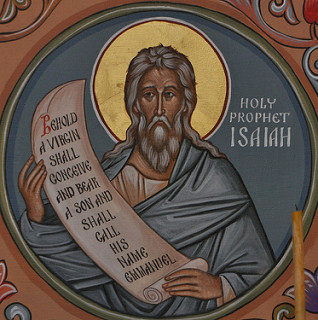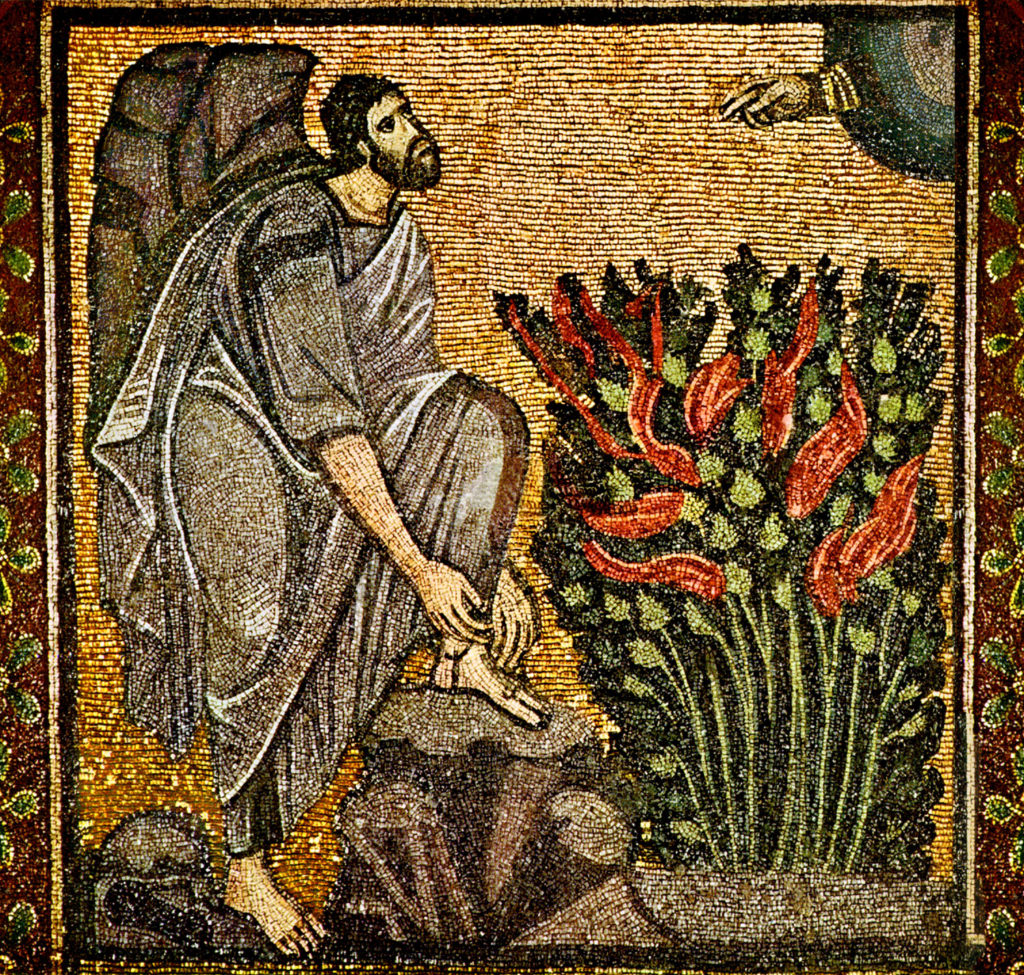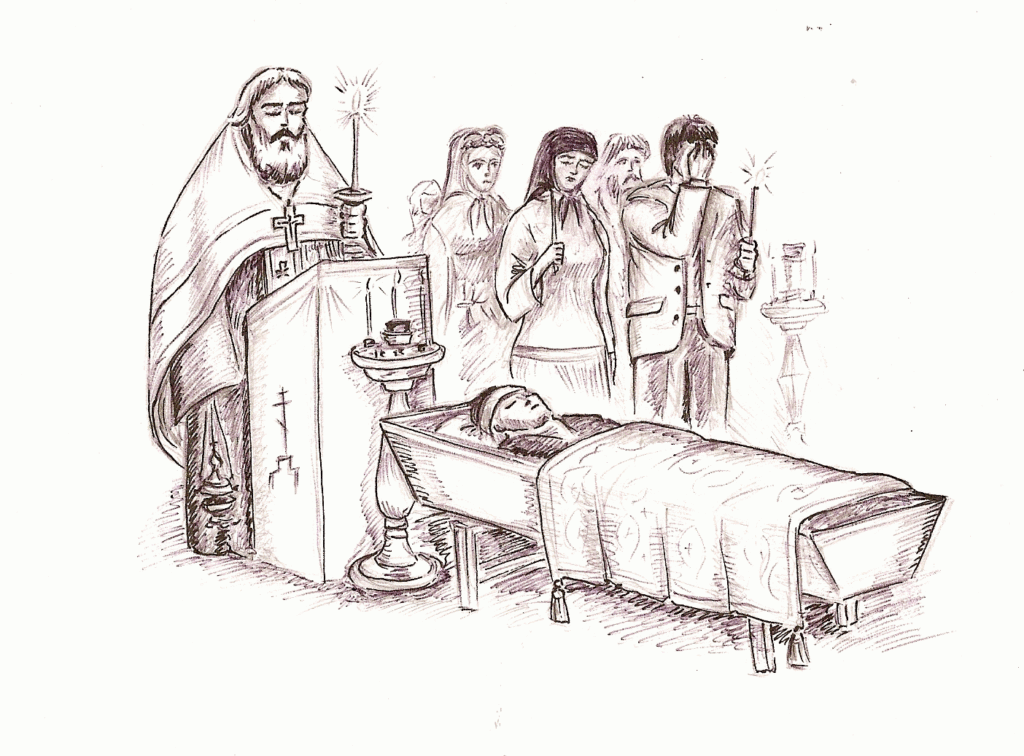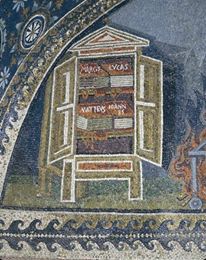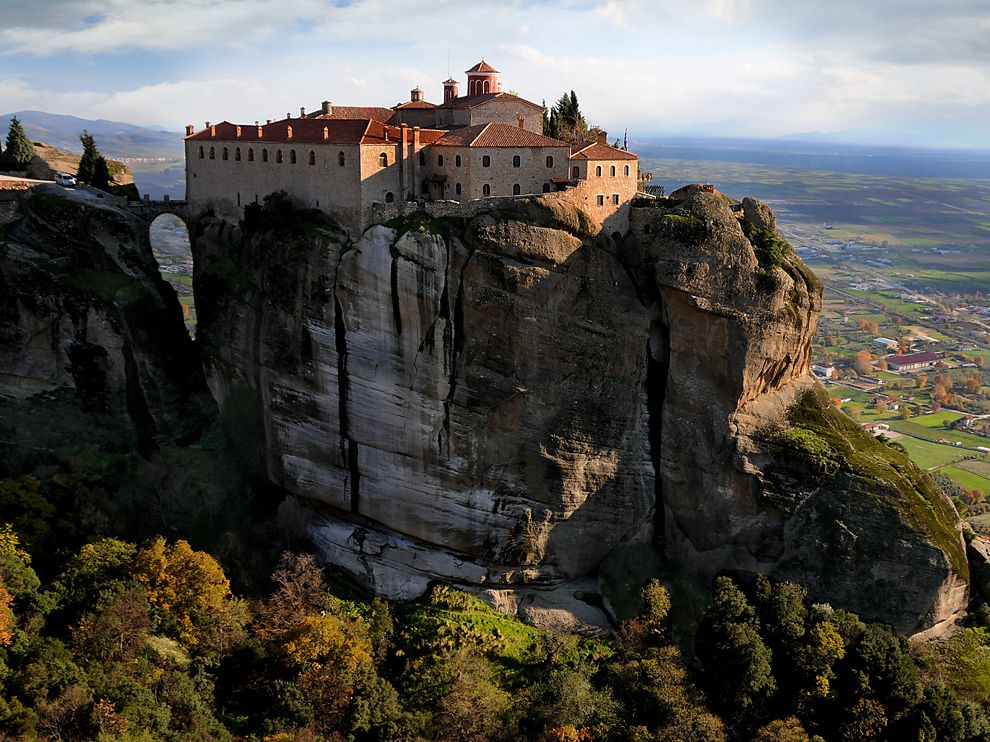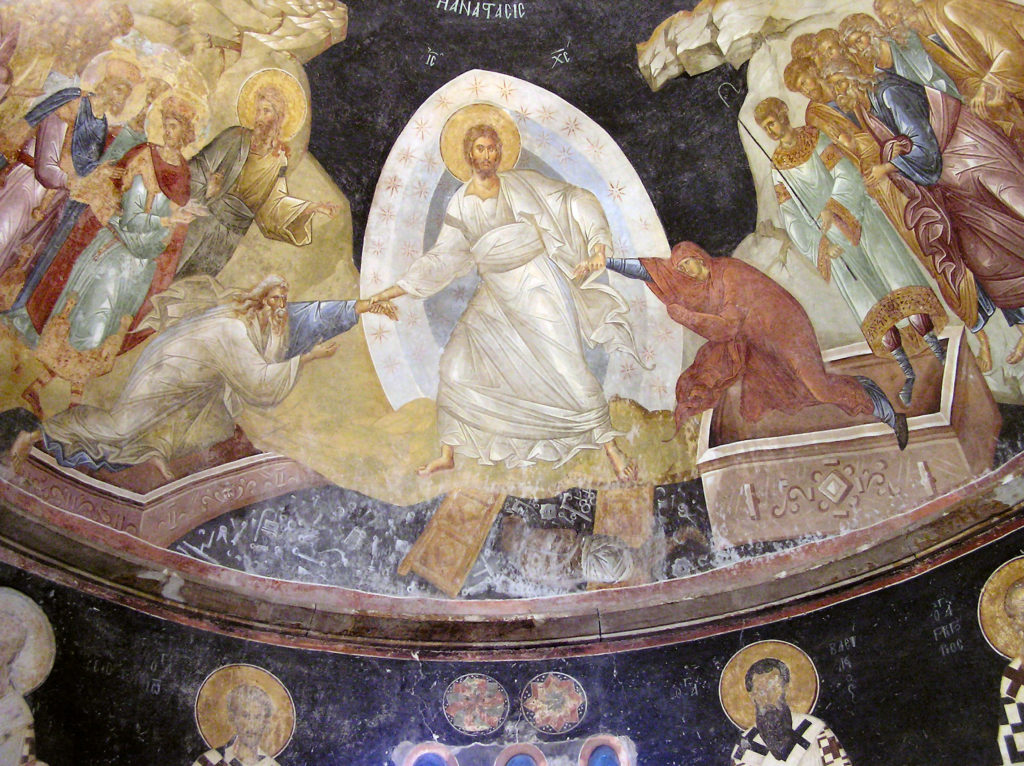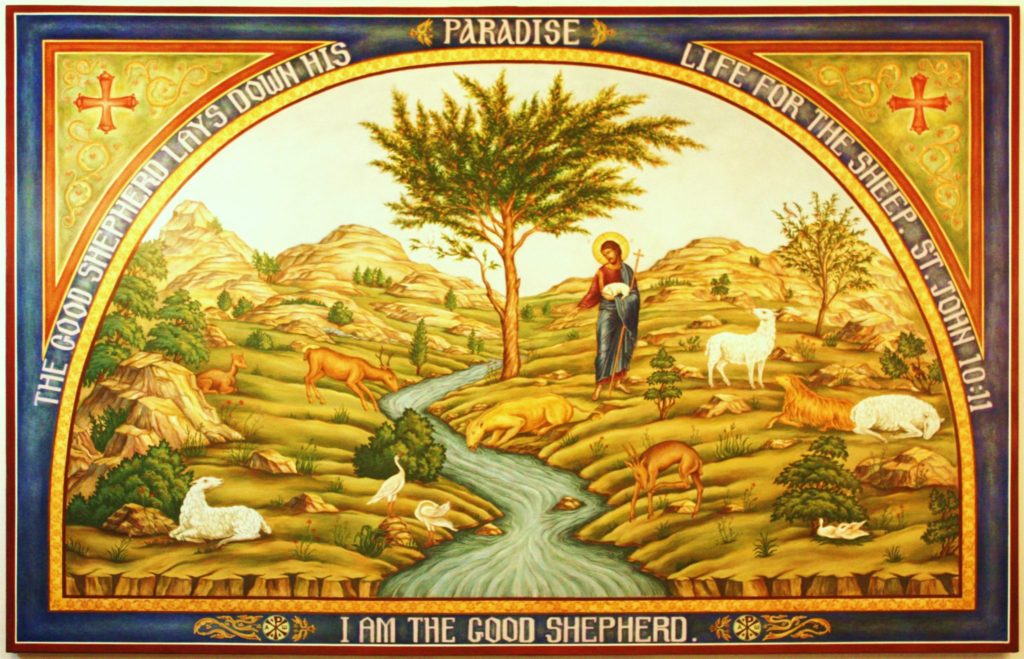You can listen to an audio podcast of this post at https://www.spreaker.com/user/youngfaithradio/esaias-vimon
Thus saith the Lord that delivered thee, the Holy One of Israel; I am thy God, I have shewn thee how thou shouldest find the way wherein thou shouldest walk. 18 And if thou hadst hearkened to my commandments, then would thy peace have been like a river, and thy righteousness as a wave of the sea. 19Thy seed also would have been as the sand, and the offspring of thy belly as the dust of the ground: neither now shalt thou by any means be utterly destroyed, neither shall thy name perish before me. 20 Go forth of Babylon, thou that fleest from the Chaldeans: utter aloud a voice of joy, and let this be made known, proclaim it to the end of the earth; say ye, The Lord hath delivered his servant Jacob. 21 And if they shall thirst, he shall lead them through the desert; he shall bring forth water to them out of the rock: the rock shall be cloven, and the water shall flow forth, and my people shall drink. 22 There is no joy, saith the Lord, to the ungodly. 49:1 Hearken to me, ye islands; and attend, ye Gentiles; after a long time it shall come to pass, saith the Lord: from my mother’s womb he has called my name: 2 and he has made my mouth as a sharp sword, and he has hid me under the shadow of his hand; he has made me as a choice shaft, and he has hid me in his quiver; 3 and said to me, Thou art my servant, O Israel, and in thee I will be glorified. 4 Then I said, I have laboured in vain, I have given my strength for vanity and for nothing: therefore is my judgement with the Lord, and my labour before my God.
Once again, in verse seventeen, the Lord proclaims the Name He revealed to Moses at the Burning Bush: “I AM.” St. Cyril of Alexandria notes this in his commentary and applies this revelation to ontology, to causality, to epistemology, and to soteriology:
He says, “I AM your God.” This “I AM” means “I am the beginning.” He explained all this to the all-wise Moses saying, “I am the one who is (Exodus 3:14).” For he as Lord is truly the God of everything. Those things that are brought into being by him are said to be “beings” also and to share in the source of being…Again he works in them a steadfast thinking and a well-established mind so that they can see God to be truly existing in nature. To these he reveals his glory so that they are not carried away by deceitful voices. – St. Cyril of Alexandria, Commentary on Esaias
What does St. Cyril mean by saying that “I AM” means “I am the beginning”? This does not mean that God’s existence is merely the first in a series of temporal events. It means both that He is the only self-subsistent being – His being depends on no one and nothing else; it is absolute, not contingent – and that He is the cause of all else that is, the ultimate beginning of everything, because everything that exists outside of Him was created by Him and depends at every moment on Him to maintain them in existence.
All human beings, then, are contingent beings; all have their existence from God. Man is neither God nor an emanation from God nor a particle of God. Each human being is a being distinct from God and from every other creature, but his being is not absolute; he is not self-existent. He can neither keep himself in existence by any amount of willing or doing, nor is he free to make up the rules for his existence. Both ontologically and morally he is completely dependent on God.
Nor is any human being exempt from the obligation to know the truth of these fundamental realities: That there is a Creator, that he is a creature, and that he is bound by the Creator’s laws to govern his behavior in certain ways and not in other ways, and that he is justly damned by God if he does not acknowledge God as his Creator and obey God’s moral law. St. Paul explains this in the first chapter of the Epistle to the Romans:
For the wrath of God is revealed from heaven against all ungodliness and unrighteousness of men, who hold the truth in unrighteousness; [19] Because that which may be known of God is manifest in them; for God hath shewed it unto them. [20] For the invisible things of him from the creation of the world are clearly seen, being understood by the things that are made, even his eternal power and Godhead; so that they are without excuse: [21] Because that, when they knew God, they glorified him not as God, neither were thankful; but became vain in their imaginations, and their foolish heart was darkened. [22] Professing themselves to be wise, they became fools, [23] And changed the glory of the uncorruptible God into an image made like to corruptible man, and to birds, and fourfooted beasts, and creeping things. [24] Wherefore God also gave them up to uncleanness through the lusts of their own hearts, to dishonour their own bodies between themselves: [25] Who changed the truth of God into a lie, and worshipped and served the creature more than the Creator, who is blessed for ever. Amen.
[26] For this cause God gave them up unto vile affections: for even their women did change the natural use into that which is against nature: [27] And likewise also the men, leaving the natural use of the woman, burned in their lust one toward another; men with men working that which is unseemly, and receiving in themselves that recompence of their error which was meet. [28] And even as they did not like to retain God in their knowledge, God gave them over to a reprobate mind, to do those things which are not convenient; [29] Being filled with all unrighteousness, fornication, wickedness, covetousness, maliciousness; full of envy, murder, debate, deceit, malignity; whisperers, [30] Backbiters, haters of God, despiteful, proud, boasters, inventors of evil things, disobedient to parents, [31] Without understanding, covenantbreakers, without natural affection, implacable, unmerciful: [32] Who knowing the judgment of God, that they which commit such things are worthy of death, not only do the same, but have pleasure in them that do them. – Romans 1: 18 – 32
How this passage applies to our situation today need not be explained. It is obvious.
On the bright side: St. Cyril states that to those who do acknowledge the natural law implanted by God in creation, the Lord takes them further along, by revealing to them “his glory”: “Again he works in them a steadfast thinking and a well-established mind so that they can see God to be truly existing in nature. To these he reveals his glory so that they are not carried away by deceitful voices.” In other words, in all eternity the Lord beholds those who are disposed to believe in Him and to repent, and He grants them “steadfast thinking and a well-established mind” to see what all men can see if they choose to: that the creation reveals to us the existence of the Creator and that, since He is our Creator, His rules must govern our lives. Furthermore, such right thinking people also by God’s grace perceive that they fall short of being able to obey these rules and that they need a savior. Inspired by this grace, the elect then move upward, through faith in God’s supernatural revelation of the Old and New Testaments, to Baptism and the sanctifying grace of the mysteriological life in the Church, by means of which they are enabled to see “his glory,” which ultimately means the glory that Christ revealed to the apostles at the Transfiguration.
To summarize then: All men are obliged to acknowledge the Creator, to acknowledge that they are creatures, that they are bound by the universal moral law revealed in the natures of created things, that they cannot by their own power always obey this law, and therefore they need a savior. Those who do not accept these realities are justly damned. Those who do confess the reality of these truths are invited by God’s grace to believe in divine revelation, and by faith and baptism are made fit for eternal life, in which they shall behold the glory of God.
As for those who claim that all of this is unfair and cannot be true, their objections are in vain. They will find out.
Glory to Thee alone, O our God, glory to Thee.

